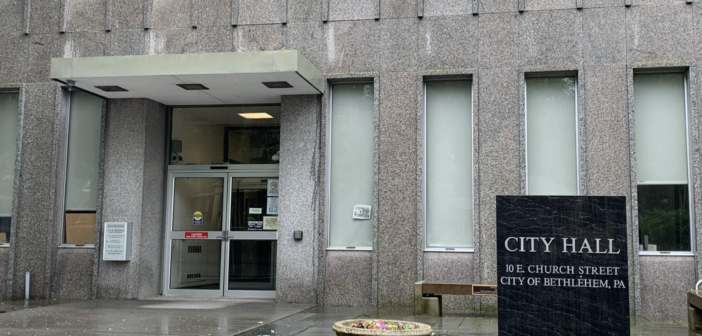In a June 16 Bethlehem City Council meeting, Bethlehem Police Chief Mark DiLuzio responded to a memorandum, dated June 9, addressed to him from two city council members.
Councilman J. William Reynolds and Councilwoman Grace Crampsie Smith, signatories of the memo, called for changes to BPD’s use of force directives in the form of “8 can’t wait”, a national campaign designed to bring immediate change to police departments.
The campaign outlines eight policies believed to reduce police killings and save lives. Those policies include banning chokeholds and strangleholds, requiring de-escalation, requiring warnings before shooting, exhausting all options before shooting, requiring officers to intervene if excessive force is used by another officer, banning shooting at moving vehicles, requiring a use of force continuum where a given situation corresponds to a specific type of weapon used, and requiring comprehensive reporting when force is used or threatened.
“We have received significant support from the members of our community about the implementation of these principles here in Bethlehem,” the memo said.
DiLuzio said his office has looked at all eight parts of the use of force directive, as well as calls for greater community policing. He handed over BPD’s use of force policy to the mayor’s office and said that there is nothing in it he wouldn’t want the public to read.
“Most of the stuff (in the memo) we already do. We’re an accredited department, and we’ve been doing these things for years,” DiLuzio said at the meeting. “The eight things in ‘8 can’t wait,’ honestly, I support all of them. I have no problem with them.”
DiLuzio believes that reform can help every police department in the country and that the criminal justice system is outdated. He said his goal is to keep his department as transparent as possible.
The push to reform law enforcement policies comes in response to nationwide unrest over issues of police brutality following recent killings of blacks at the hands of police officers. The Pennsylvania state legislature has a series of hearings planned this week on issues related to law enforcement and criminal justice.
The memo also outlines a city-wide community engagement initiative, designed to promote “community policing” programs, which include working with elementary school students and attending block watch meetings where citizens share the issues affecting their local neighborhoods.
“[Community engagement initiatives] provide positive, trust-building opportunities for members of our community and the police officers who serve them,” the memo said.
Reynolds said it is time for a bigger conversation with the public. He would like to see a push for community engagement to foster discussion about systemic racism, injustices and policing.
He would also like to see more employees in police departments in non-traditional roles to make officers’ jobs easier.
“A lot of us are teachers, but we understand that sometimes you don’t need to add more teachers to a school,” Reynolds said at the meeting. “You need to add mental health professionals, you need to add guidance counselors, you need to add other people. We need to take a look at how we’re organizing law enforcement and find ways to expand the number of people that have a voice.”






Comment policy
Comments posted to The Brown and White website are reviewed by a moderator before being approved. Incendiary speech or harassing language, including comments targeted at individuals, may be deemed unacceptable and not published. Spam and other soliciting will also be declined.
The Brown and White also reserves the right to not publish entirely anonymous comments.